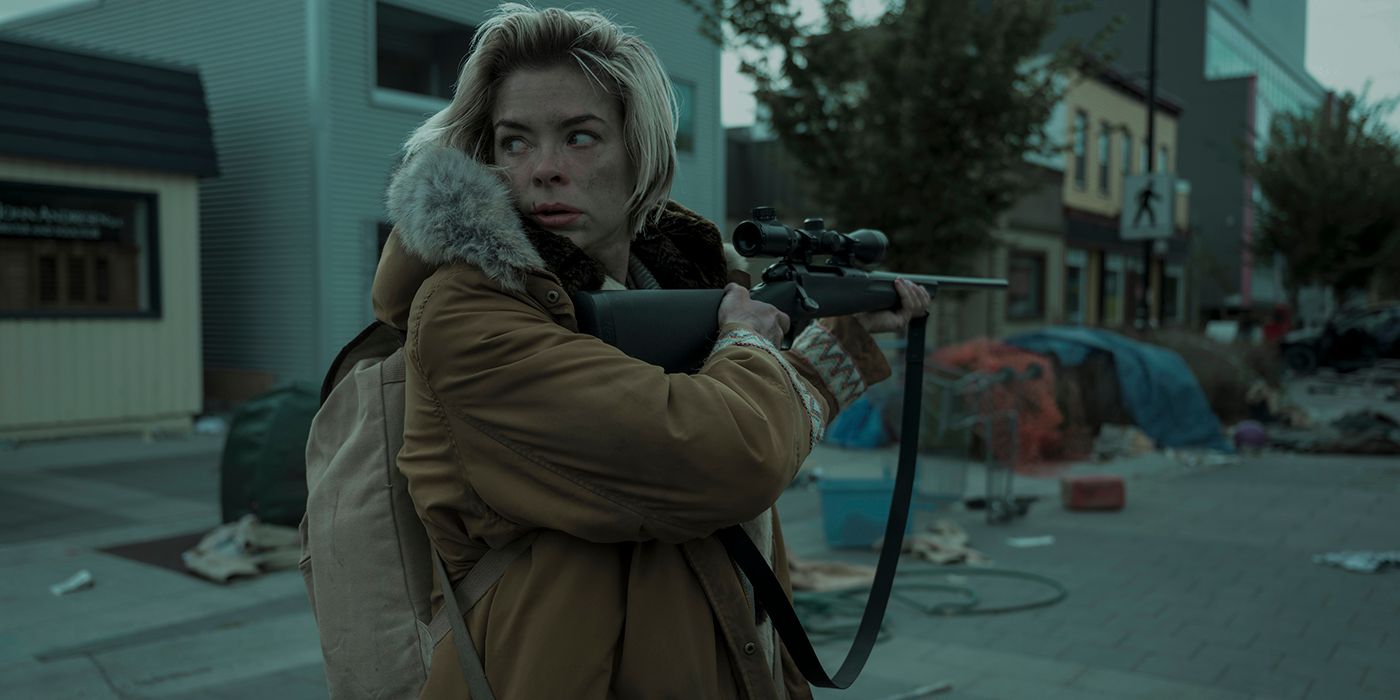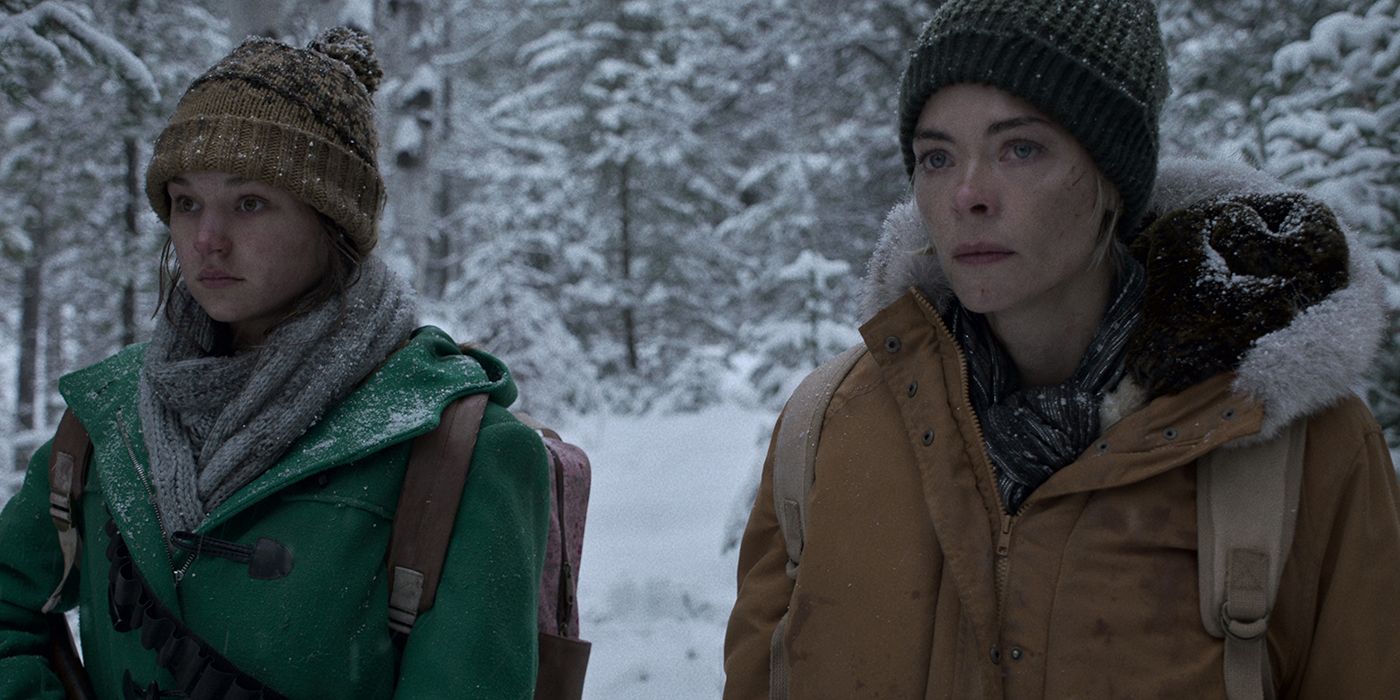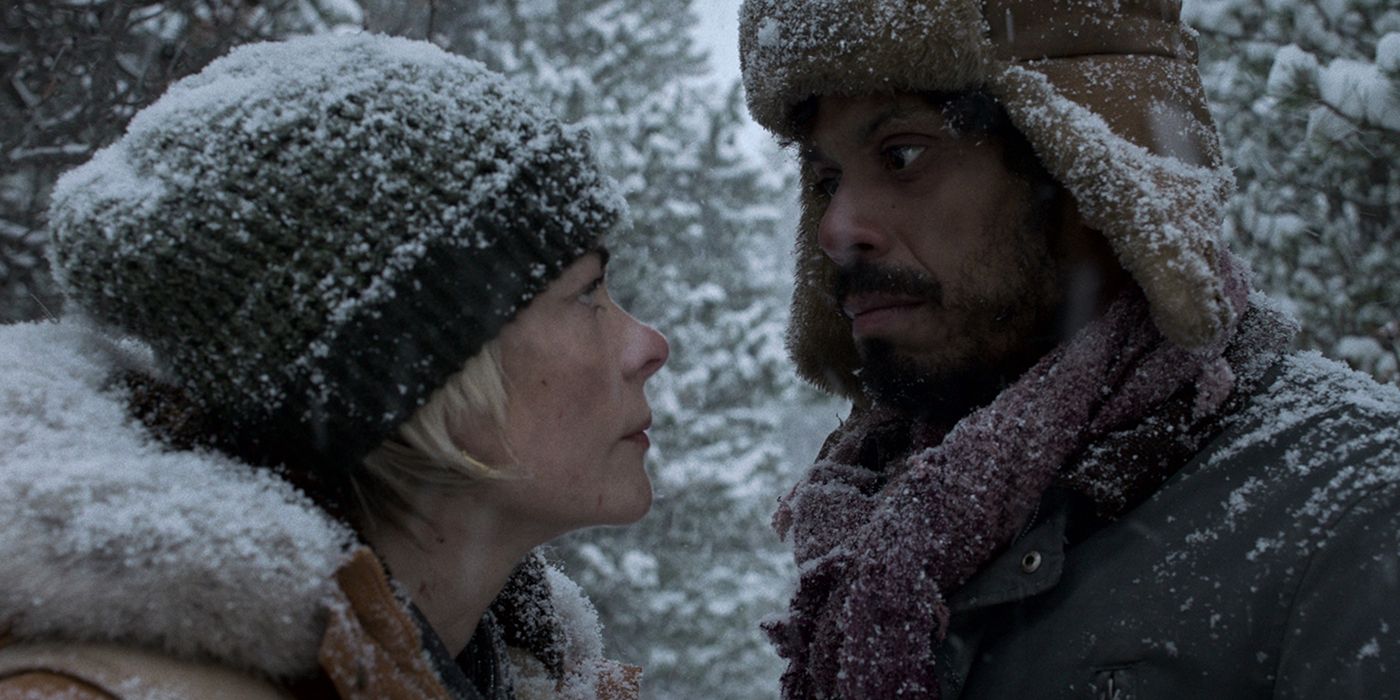Black Summer is back on June 17 for a second season, and the stakes are higher than ever. The Netflix zombie show is different than its peers, despite being written and directed by Z Nation producers John Hyams and Abram Cox, and the second season only leans further into the societal implications of rampant virus rather than relying solely on the thrill of the zombie chase.
Jaime King returns to star as Rose, a woman driven to survive by the single-minded goal of reuniting with her daughter - which she finally managed to do in the last few seconds of the first season. With that out of the way, she now must ensure Anna's safety as well as the preservation of her soul.
King spoke to Screen Rant about diving into the psyche of her character beyond dialogue, taking a hands-on approach to the series, and the difficulties of shooting the series during a pandemic.
I loved you as Lemon in Hart of Dixie, where you had plenty of witty one-liners and fun dialogue moments. But what really stood out to me about Black Summer is the focus on your expressions and how much you can convey without words. How do you approach this extreme version of showing and not telling?
Jaime King: Lemon is one of my favorite characters; I love her. But I've never preferred things that are expository, and I will strike things out as quickly as possible. It also depends on the film, the show, the series, and the approach.
With Lemon, it'd be two pages of a monologue, but it was in the way I was able to speak about her. It was the cadence, and I would practice so much on getting it so that it would come out and work for who she is as a human being. For this, when John Hyams and I were first talking about season 1, it was like, "You know when you hear a car crash, and you go to look, but you barely see it?"
We really wanted to push the boundaries on that, which we did with season 1. And then with season 2, we really pushed the boundaries of it. Actors would come that had never been on set before and would memorize all these pages, and then we have this tradition where we throw the script on the ground and say, "Okay, so what are we doing?" Not [literally, but] you have script there, with John and the actors, and it's all coming out in the moment, you know what I mean?
If you can show it, you don't need to say it. It's trusting the audience. To me, it's about giving the trust back to human beings in the audience and saying that you don't have to tell the audience what just happened two minutes ago. You don't have to say everything, because that's not real life. We can be like, [serious tone] "I love you," or [bubbly tone] "I love you." It's just two totally different things. Or you can say, "I love you" by saying nothing at all, just through your behavior. And it's really exciting to do that, especially in this world.
For me as a producer on this and starring in it, it's great to really push the boundaries of that, and to have a showrunner and a studio that allows that to happen. Because what it does for the actors in that moment is something that's really extraordinary. Everyone's just going for being present in the moment; that's all human beings really want. All we really want is just that moment, of actively listening, and of receiving and giving at the same time. And that's what is, to me, really well done in this show.
Definitely. This is not a show that I can watch near my phone, because if you miss even one second, there’s a whole dynamic shift. But second season definitely has Rose not only mixing it up with different people, but also in a totally new headspace. Can you talk about how her motivations have changed after reuniting with her daughter in season 1 finale?
Jaime King: In the preparation for season 2, and in the writers' room and stuff like that, I kept hearing that, "Rose is dead. Rose is dead. That Rose from season 1 is gone." Because it's true. I did a lot of research on situations like in Rwanda, mothers that go through war, child soldiers and what it means to be a mother that has to have their child do things and go through something that is so horrific. I studied with the Trauma Institute of Boston, and I did all of these different things to really understand what it means. What does that feel like?
That's literally why I had Ted chop off my hair, and in a very specific way. Because it was like, "Okay, it's gonna be winter. It's gotta be able to cover my ears, so the ears stay warm, that's practical. But the long hair is not practical, because anything can get in the way." And I journaled pretty much every single day as Rose, and did a lot of different methods to hook into her and really understand what that feels like when your heart is caged. The number one thing is to make sure your child lives; to make sure you're training you child in case something happens. And how do you shove that down?
I'm innately a deeply sensitive human being, so when I'm watching an actor, I immediately start crying because I look at what they're doing and it's just so beautiful. The art that comes out of human beings is so beautiful. So, that part of me, I have to really shove down - because for her the emotion is just survival. Especially watching Zoe, who plays my daughter Anna. We're very close, but just watching and being with her and these other actors, you can only imagine what we went through.
I'm sure filming the second season during COVID restrictions only made that connection more emotional onscreen.
We shot consecutively, and I remember being in the car while Broadway shut down, then this other thing shut down. I have crew members crying because they don't know about their next check. I'm in the vehicle trying to handle this, then I have to go onto set and be Rose. But all the actors, and all of the crew were so tight, and it was such a safe space that we could put it in to the work.
For us to come back up in the middle of the pandemic - it was like the first production back up for them - and get through COVID clean was insane. But it was so powerful and so beautiful to watch everyone truly come together in some kind of very rare alchemy. Weirdly, it's exactly like the show. We're like, "How did this happen? We've been filming these things, and then here we are in the middle of a pandemic." We got to use it all, and hopefully we give something back to the world that people enjoy.
The onscreen virus takes on a whole new meaning in season 2 after actually experiencing a pandemic. Last season could be interpreted as a metaphorical sickness infecting humanity, but now there is a physical threat.
Jaime King: Well, that was the thing! Everyone in the beginning was like, "Oh, this is a zombie show. And we were like, "No, no. This is all metaphorical. This is about a sickness between the division and the hatred of this country, and what does that look like?" And then the exploration in season two was then how do people handle that trauma, and how do people respond to it.
I mean, you've seen it. I've seen it a bajillion times, but it's always interesting to see people's responses.
I do think that it's just so timely right now on both fronts: exploring systemic hatred and battling a real pandemic. But the show must be so intense to shoot. What do you do to de-stress or take all the tension of the series out when you're not filming?
Jaime King: Honestly, for me, it was a very hard conversation to have because we were one of the first Americans to have these essential worker visas. So, it's having a call with my studio and really appealing to the hearts of people and saying, "Listen, this is what we have to do. You can't bring your family, you can't bring a friend, you're not going to be able to go over the border. You are strictly strictly contained to that house for two weeks." And this is not just about us; this is about our industry. This is how our industry impacts everything else. This is about people's jobs.
It was a very interesting and intense experience for me, personally, to have to even have that conversation. But also knowing that I deeply trust my crew and my cast, the way that I would distress would be very different. Because being the producer and the star, I couldn't go out. I think I left the house six times - literally, six times - throughout the entire process. And I wasn't able to go on to set if I wasn't on camera. Even when I was on set to be on camera, my zone was separated from the rest of the cast.
So, to de-stress, I stared a lot of walls. I ran up every single comedy special that existed. I had an untuned piano in the garage of my house, so tried to figure out chords on the untuned piano. Yeah, that's what I did.
What are you most excited for fans of Black Summer to see in season two? Whether it's about Rose and Anna, or any of the other survivors.
Jaime King: I'm just so excited that people have something to watch, first and foremost. For season two, not just for Rose and for Anna, but for some of the most extraordinary actors. Edsson [Morales], who plays Manny, has one whole film - or what I call a film - with Justin [Chu Cary], who plays Spears. I'm so excited for people to discover these actors that they haven't seen in this kind of work before.
And it's breathtaking to watch oners where everyone's just so present. Every person on this cast and crew literally poured their hearts out, put their lives on the line, their families on the line for this. They couldn't see their kids. That's the truth. I could give you some spiel about what it is specifically, but it really is that we put everything into this. And that informs the most exciting things about the show.
Black Summer season 2 drops June 17 on Netflix.



